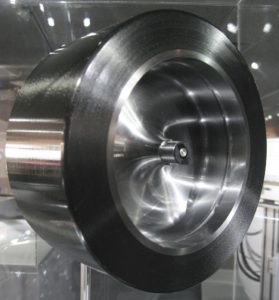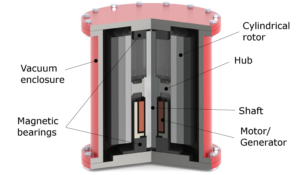 Flywheels
Flywheels
Flywheels are simple disks or cylinders that rotate freely around a spindle. Since ancient times, they have been used to reliably store kinetic energy. Although an ancient and mature technology, flywheels have advanced along with our engineering prowess, and are an excellent sustainable storage option for applications where the supply or demand fluctuates sharply.
Flywheels with simple mechanical bearings can lose energy to friction quite quickly, but more modern and advanced systems are extremely good in all respects.
- Largely made from inert materials that won’t harm the environment or degrade
- Energy efficiency as high as 90%
- Can operate safely within a wide temperature range
- Can function for decades with little or no maintenance
- Excellent energy density (size vs energy stored)
- Very easy to measure exact amount of energy stored via speed
- Very high maximum power output or output

Modern efficient flywheels are compact, and completely enclosed so that the wheel itself can operate in a vacuum to avoid air resistance. Unlike older systems, they can use permanent magnets to reduce friction against the spindle during rotation and can accelerate to many times the speed of sound, which is an incredible amount of possible energy due to the high mass involved.
